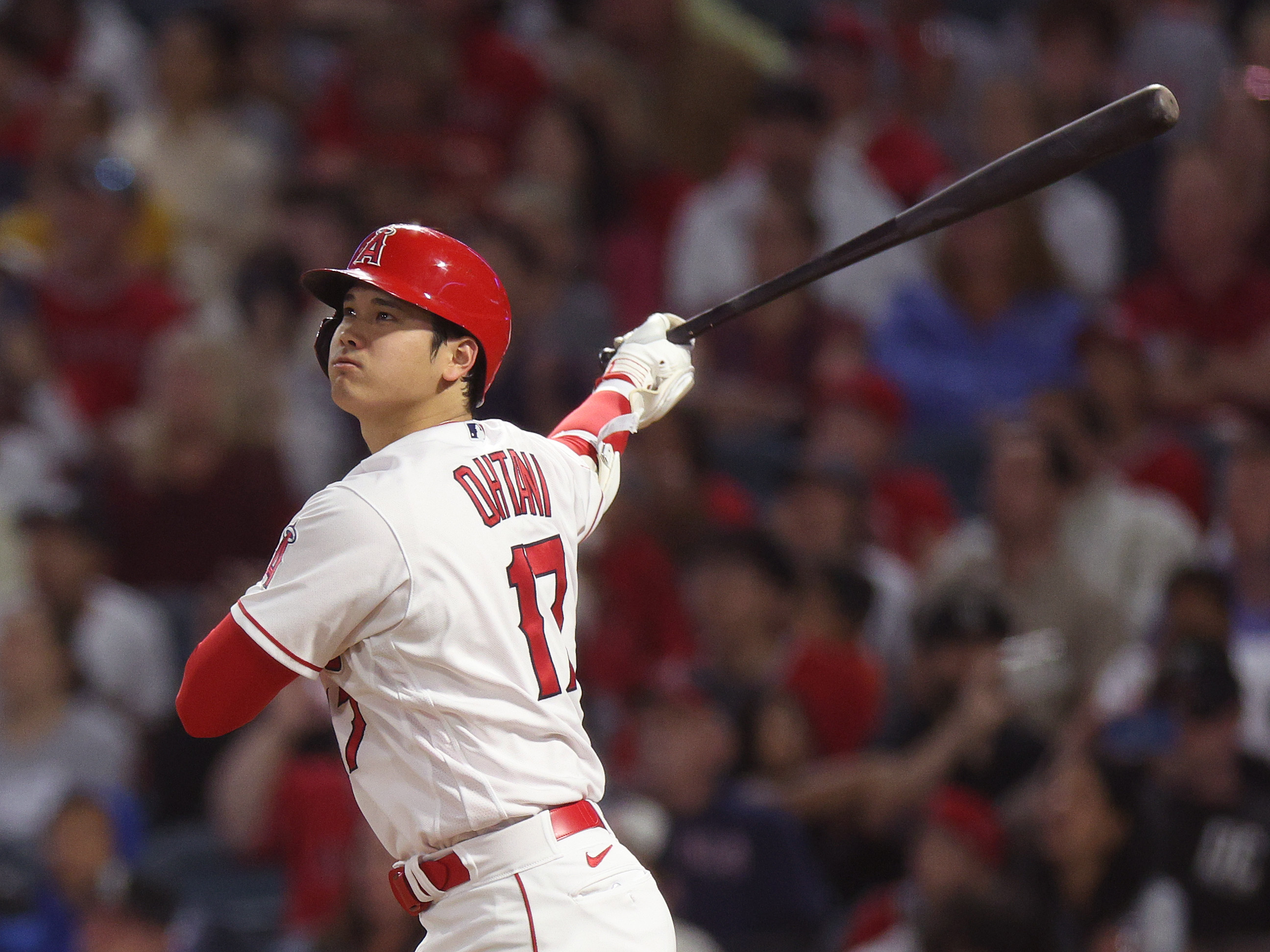Every inning of baseball without an appearance from Shohei Ohtani is poorer for his absence. Do not show to me those innings. I have no use for those innings. What I want is more of last night’s perfect double-cast play: Ohtani striking out two of the three White Sox batters he faced in the top of the first, and then coming back on stage in the bottom of the inning to hit a home run that sounded like a CRACK_OF_THE_BAT.mp3 you might download from a cheap SFX library. The best offensive month of Ohtani’s MLB career is coming to an end soon, but so long as there are days left in June, he is determined to make this the coolest, most awe-inspiring June you have ever seen in your life. Mr. June!
Shohei Ohtani pitched a 1-2-3 first inning with two strikeouts and then hit his MLB-leading 27th homer of the year in the bottom of the inning. pic.twitter.com/NzkyUJELqM
— Rhett Bollinger (@RhettBollinger) June 28, 2023
On the nights when he is his own run support, Ohtani has looked his best in the batter’s box this year; he's batting .407 with a 1.280 OPS in those games and he’s hit a home run in three of his last four pitching starts. This is what’s sometimes called “setting yourself up for success,” and indeed, when Night Me decides to go to sleep at a reasonable hour so that Morning Me will be well-rested, it does occur to me that I am remarkably like Shohei Ohtani. But Tuesday night was the first time he’d hit home runs—plural—as a starting pitcher. The first opened the scoring off White Sox starter Michael Kopech, and the second was an absurd one-armed opposite-field shot off Touki Toussaint in the bottom of the seventh.
Shohei Ohtani's night:
— MLB (@MLB) June 28, 2023
2 HR as a batter
10 Ks as a pitcher. 😱 pic.twitter.com/Bzm0Q3qvKF
It shouldn't really be possible for a lefty to a hit home run on that pitch, to that part of the field, just a few minutes after putting his legs, shoulder, and elbow through the stress of throwing 102 pitches against major-league competition. That Ohtani did, and just a few minutes after Angels PR announced that he had been removed from the game as a pitcher with a cracked fingernail, served as yet another reminder of just how limitless this guy is. The magic never dies.
Ohtani would finish 3-for-3 with two home runs and a walk, or having recorded one less hit himself than he gave up to the entire White Sox lineup in six-and-a-third innings of work. “What he’s doing is pretty incredible when you see it with your own eyes,” said White Sox third baseman Jake Burger, the victim of one of Ohtani’s 10 strikeouts.
Those 27th and 28th home runs give Ohtani some cushion as the major league home run leader. Those strikeouts bumped him up to third in the majors, behind Spencer Strider and Kevin Gausman. Because of injuries to Anthony Rendon, Zach Neto and Gio Urshela, the Angels traded for some infield depth this week, adding Mike Moustakas and Eduardo Escobar in trades. After Ohtani, the two of them were the first players Angels manager Phil Nevin mentioned in his postgame comments. It was special to watch Ohtani every day and he would never take it for granted, he said, but the coolest part was watching “new guys” experience it for the first time. “They see this, they’re in amazement—and we all are—but the first time ... to see it.”
Take it from the person who watches every pitch Ohtani throws and every plate appearance he makes. This never gets old. There is always brilliance there, always some new kind of delight to be taken, always some new way to enjoy this. Sometimes it is worth taking a moment to remind yourself: Shohei Ohtani. Shohei Ohtani!!! And to answer your question: The Angels did win.






